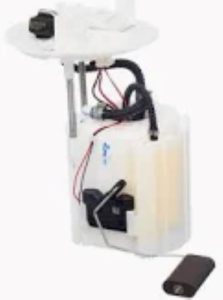Fuel Pump TrendsThe most recent advancements in fuel pump technology work to improve efficiency, decrease emissions, and enhance vehicle performance. Variable-speed fuel pumps that alter the flow of petrol depending on the engine's requirements are considered one of the most significant developments. These pumps are capable of running on very low flow rates when the car is sitting idle and quickly ramp fuel delivery up during acceleration or heavy loads. This tech helps in reducing energy consumption by as much as 20%, which also delivers better fuel efficiency and lower emissions, for instance hybrid and electric vehicles.
The flow rates of electric fuel pumps are much more compact, and so is the weight. Manufacturers have been able to make gains in overall vehicle efficiency by reducing the size and weight of fuel pumps, which reduces the work on the engine caused by lugging around a heavy fuel system. For instance, new electrical fuel pumps designed for modern fuel systems are 30% lighter than traditional units while delivering the same performance level: a flow rate of 150 to 255 litres/hour(LPH). The weight loss not only enhances handling and saves fuel, it also keeps performance from suffering.
A new aspect is the implementation of brushless motors among fuel pumps. They are also useful in increasing the lifetime of the pump by reducing friction and help to improve efficiency as well. The latest brushless motors can extend the life of a fuel pump by up to 30 percent, now seemingly exceeding 150,000 miles of service. In addition, these motors operate more quietly — up to 50% less noise for a quieter ride.

It's also the way of the future, as demonstrated by smart fuel pump systems that are filtering into automotive production. With sensors and microprocessors, these systems watch fuel pressure, temperature, and flow rate at all times, delivering optimized fuel supply regardless of the driving circumstance. Should it detect any problems, the system can then either alter how the fuel pump operates or notify the driver, increasing safety and lowering the potential for a fuel pump to fail. The car maker said the new intelligent systems could result in up to 15% better fuel pump efficiency than current products which would lead to cost savings during the life of a vehicle due to lower maintenance costs.
Due to environmental reasons the manufacturers did concentrate also on producing Fuel pumps which are not emitting gas. Newer designs are better made from fuel contaminants, reducing the amount of harmful pollutants—including nitrogen oxides (NOx) and hydrocarbons—released into the atmosphere. These advancements in filtration and fuel delivery systems enable achieving even more stringent emissions standards without compromising vehicle performance. At the same time in 2021, Toyota countered with a fuel filter that promises to capture every last mote before it makes its way into the combustion process—resulting in slashing pollution by as much as 10.模組化.
Industry events have taken note of these improvements, such as those on display at the 2022 SEMA Show where manufacturers unveiled fuel pumps engineered to satisfy increasing output demands, while meeting evolving emissions legislature. It reflects an increasing trend toward cleaner and more efficient fuel delivery systems which are likely to be highly prevalent over the upcoming years.
To know more Fuel Pump, you can visit this site Fuel Pump Appreciation The Latest In What Requires To Be Recognizing OnFuel Circulation.